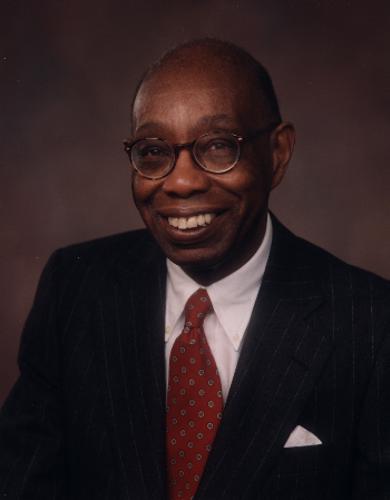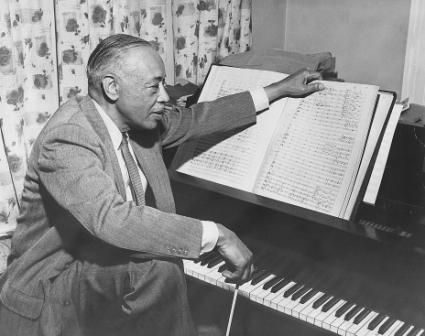/ News Posts / Thinking Outside the Box for Black History Month
Thinking Outside the Box for Black History Month
How Do We Change the Narrative?
By NAfME Member Marques L. A. Garrett
February is the annual celebration of the lives, work, and influence of Black Americans to U.S. history and culture. Black History Month becomes more specific to musicians as we celebrate musicians of African descent (Black) and their contributions to the world of music. These musicians have music of various genres, both idiomatic and non-idiomatic. It is then important to honor their unique contributions as the artists and composers have been trained both in the classroom and in the world.
Unfortunately, concert programs and curricula continue to propagate the stereotypes that certain groups of people can create only one type of music due to a narrow view in programming and a lack of instruction of the idiomatic music of various cultures.
My Facebook post on January 6 helped to spark a conversation which resulted in the invitation for this post. From the post, “As you’re planning your Black History Month concerts, please remember that Black composers have done more than arrange spirituals and write Gospel music and jazz.”
“As you’re planning your Black History Month concerts, please remember that Black composers have done more than arrange spirituals and write Gospel music and jazz.”
This is often the multicultural lens through which we choose to view cultures that are not typically associated with Western art music. This is why audience members have been shocked when some Black composers stand to be recognized after a performance of a symphonic work where they didn’t know the composers or what they looked like. It is also the reason why undergraduate students are still amazed when I say that Black composers have done more than arrange spirituals for choir and solo voice.
I continued in the post with, “There are art songs, part songs, choral art songs, anthems, motets, string quartets, piano suites, sonatas, cantatas, masses, requiems, symphonies, oratorios, and operas.”
How do we change the narrative? Well, there are several ways. Educators as a whole must be dedicated to exposing our students to more. Intentional programming and instruction will help represent many. Yes, this will take some work as most textbooks and curricula have not explored topics in this area.
“Educators as a whole must be dedicated to exposing our students to more. Intentional programming and instruction will help represent many.”
Some important figures in the classical world are worthy of more attention. William Grant Still (1895-1978) is considered the “Dean of African American Composers.” He was the first African American to conduct a major American symphony orchestra, a major American network radio orchestra, and have an opera produced by a major American company. Undine Smith Moore (1904-1989) is considered the “Dean of African American Women Composers.” George Walker (1922-2018) was the first African American to win the Pulitzer Prize in Music. Even if you don’t program any of their music, your students should learn about these pioneering musicians who have paved the way.
Are spirituals one of the most important genres of American music ever created? Yes. Did they pave the way for Gospel, jazz, blues, rock, hip hop, and even musical theater? Yes. Should we continue celebrating that music throughout the month of February? Absolutely! Let’s now start, or continue finding ways, to explore music outside of the cultural boxes in which we’ve placed them. There’s too much music for us to limit ourselves to the same styles repeatedly.
Then visiting director of choral studies at the University of South Florida, Dr. J. A. Dungee, programmed a concert in February 2017 that included spirituals, art songs, hymn arrangements, Gospel music, and many original works for choir:
Combined Choirs
Lift Every Voice and Sing – arr. Roland Carter
Chamber Singers
Hymn of Consecration – Marvin V. Curtis
Blind Man – arr. William Grant Still
Stars I Shall Find – Victor C. Johnson
Abide with Me – arr. Moses Hogan
Shenandoah – arr. Rollo Dilworth
I Dream a World – André J. Thomas
Ain’-a That Good News – arr. William Dawson
Solo Recital Works
My Dream – Florence Price
Sometimes I Feel Like a Motherless Child – arr. H.T. Burleigh
The Negro Dreams of Rivers – Margaret Bonds
Chamber Singers
The Lord’s Prayer – Charles Garner
Ave Maria – R. Nathaniel Dett
Selections from A Choral Triptych – Jason Max Ferdinand
Arise My Beloved – Adolphus Hailstork
Sanctus – Carlos Simon
Hehlehlooyuh – James Furman
Combined Choirs
God Is Great – Ricky Dillard
O for a Faith – arr. Nathan Carter
Never be scared to explore. Use the Internet for all of its goodness. Organizations such as the National Association of Negro Musicians, African American Art Song Alliance, Rachel Barton Pine Foundation, and Institute for Composer Diversity are excellent resources with knowledgeable people who can provide additional resources.
Search the database: “Beyond Elijah Rock: The Non-Idiomatic Music of Black Composers” by Marques L. A. Garrett.
Selected Anthologies of Solo and Chamber Music
African-American Organ Music Anthology, Vols. 1-8—MorningStar Music Publishers
Anthology of Art Songs by Black American Composers (compiled by Willis C. Patterson)—Edward B. Marks Music
A New Anthology of Art Songs by African American Composers (selected by Margaret R. Simmons and Jeanine Wagner)—Southern Illinois University Press
Art Songs and Spirituals by African-American Women Composers (ed. Vivian Taylor)—Hildegard Publishing Company
Arias, Duets and Scenes, Vols. 1-3—William Grant Still Music
Black Women Composers: A Century of Piano Music (1893-1990) (ed. Helen Walker-Hill)—Hildegard Publishing Company
Brass Music of Black Composers: A Bibliography (compiled by Aaron Horne)—Greenwood Press
Chamber Music by Black Women Composers (ed. Helen Walker-Hill)—Hildegard Publishing Company
Four Early 20th Century Piano Suites by Black Composers—G. Schirmer
King of Kings—Organ Music of Black Composers, Past and Present (ed. James Abbington), Vols. 1-3—GIA Publications
String Music of Black Composers: A Bibliography (compiled by Aaron Horne)—Greenwood Press
Woodwind Music of Black Composers: A Bibliography (compiled by Aaron Horne)—Greenwood Press
About the author:
Marques L. A. Garrett is an Assistant Professor of Music in Choral Activities at the University of Nebraska–Lincoln in the Glenn Korff School of Music. Before completing the Doctor of Philosophy degree in Music Education (Choral Conducting) at Florida State University, he was the Director of Choral Activities at Cheyney University of Pennsylvania. He is an accomplished vocalist and composer with his works published with Mark Foster, GIA Publications, Walton Music, Santa Barbara Music Publishing, Hinshaw Music, G. Schirmer, and Beckenhorst Press and performed by festival/honor choirs, all-state choirs, and professional and university choirs such as Seraphic Fire and the Oakwood University Aeolians. He regularly serves as a choral clinician and guest conductor for festival and honor choirs throughout the country.
Did this blog spur new ideas for your music program? Share them on Amplify! Interested in reprinting this article? Please review the reprint guidelines.
The National Association for Music Education (NAfME) provides a number of forums for the sharing of information and opinion, including blogs and postings on our website, articles and columns in our magazines and journals, and postings to our Amplify member portal. Unless specifically noted, the views expressed in these media do not necessarily represent the policy or views of the Association, its officers, or its employees.
Published Date
January 30, 2020
Category
- Diversity, Equity, Inclusion, and Access (DEIA)
- Race
- Representation
Copyright
January 30, 2020. © National Association for Music Education (NAfME.org)








